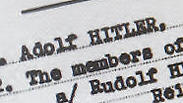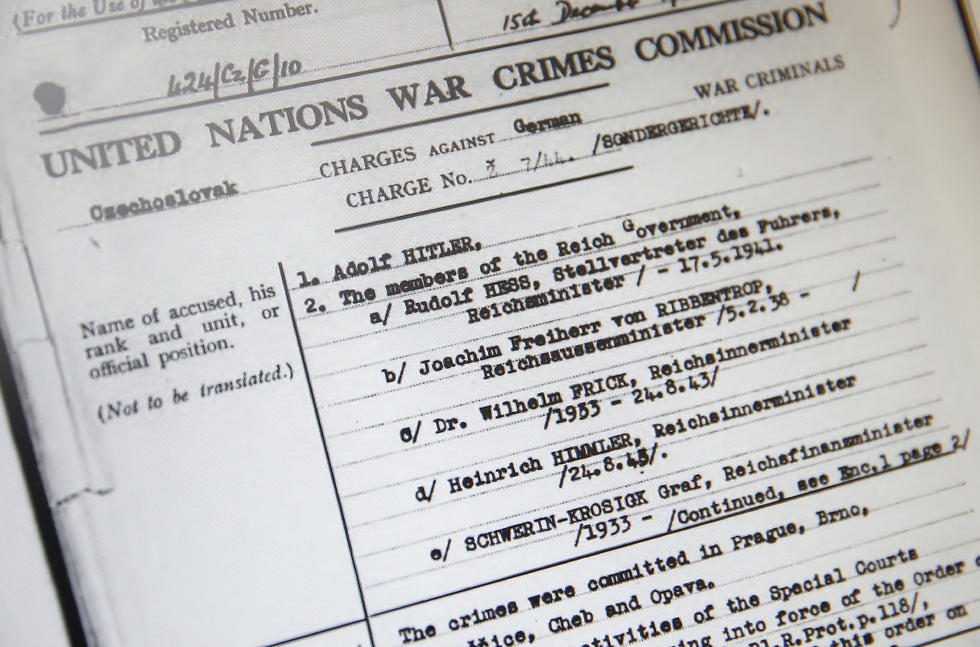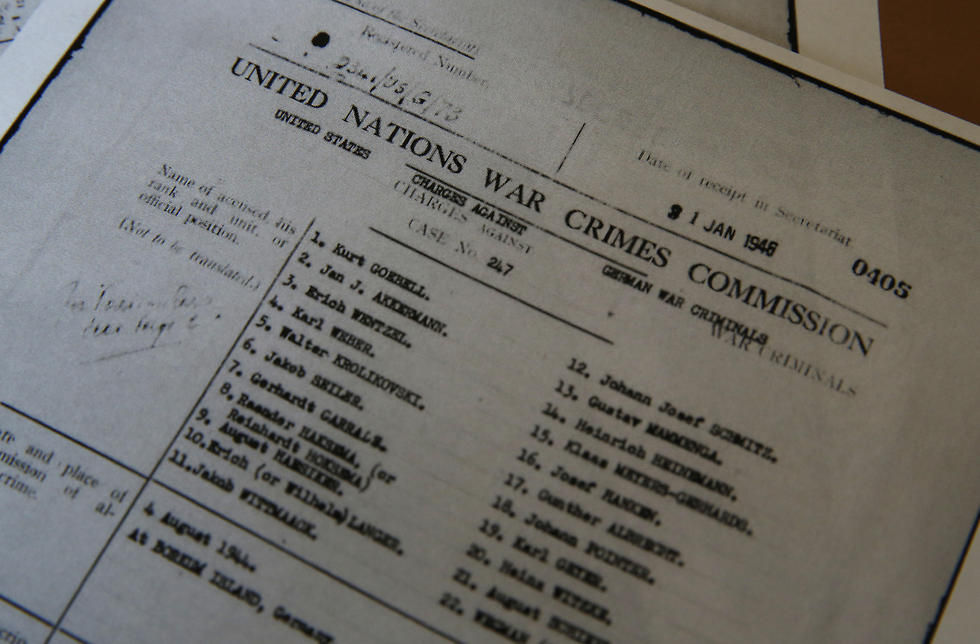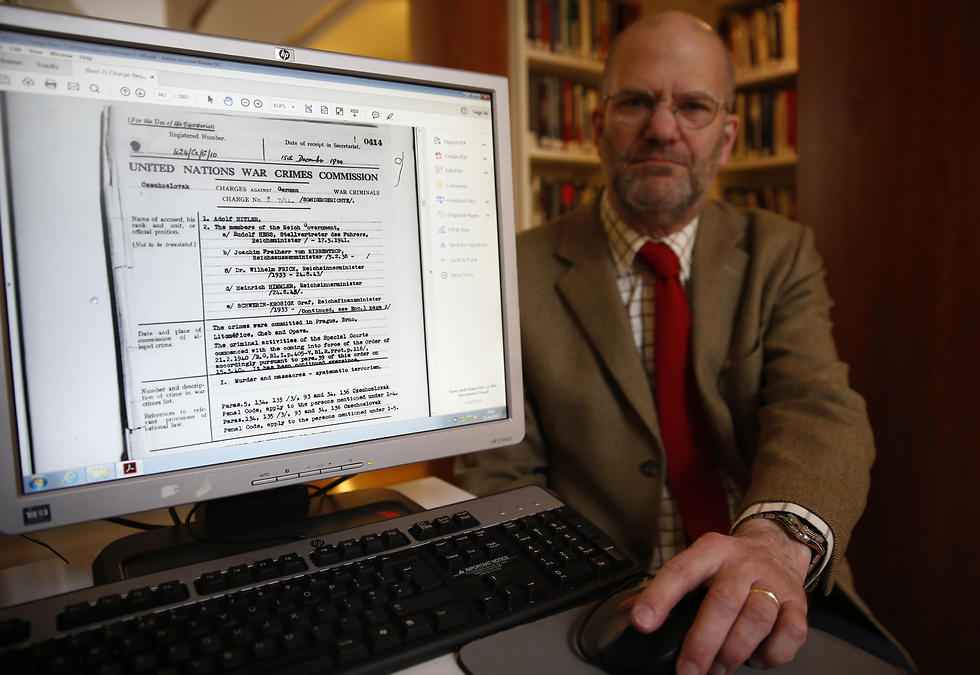
Library to release catalog on World War II era documents
After being locked away in the UN until 2014, and only then made partially accessible to the public, Holocaust library in London to make trove of UN files on WWII war crimes more open for public inspection: ‘This is a whole hardware store of nails to hammer into the coffin of Holocaust denial,' says historian.
The Wiener Library for the Study of Holocaust & Genocide is making the United Nations' files on World War II war crimes more accessible by allowing the general public to search an online catalog of the documents for the first time beginning Friday. People will still have to visit the library in London or the US Holocaust Museum to read the actual files.
The move is expected to increase interest in the archives of the United Nations War Crimes Commission, including the names of some 37,000 people identified as war criminals and security suspects. The commission operated in 1943-1949, but access to its records was restricted for political reasons in the early days of the Cold War.
"This is a whole hardware store of nails to hammer into the coffin of Holocaust denial," said Dan Plesch, director of the Centre for International Studies and Diplomacy at SOAS University of London. "It's the first time it is practically accessible to the general public as the commission initially intended."
Plesch and other researchers campaigned for the UN to open access to the files, which he used to write the book "Human Rights After Hitler." In 2014, the US Holocaust Museum made the archive freely available at its reading room in Washington. Prior to that, the records had been largely locked away at the United Nations, which granted only limited access.
"Nobody has paid any attention to it," said Ben Barkow, director of the Wiener Library. "It has been hidden in plain sight."
The documents detail Allied efforts to prosecute thousands of alleged Nazi and Japanese war criminals, from heads of state like Adolf Hitler to guards at the Auschwitz and Treblinka concentration camps.
The archive includes evidence gathered by local people who documented crimes long before the war ended and smuggled to Allied leaders in London.
"These people were meeting under aerial bombardment, dealing with affidavits smuggled out" of occupied countries, Plesch said. "Resistance movements were paying attention to the legal prosecution of oppressors."













